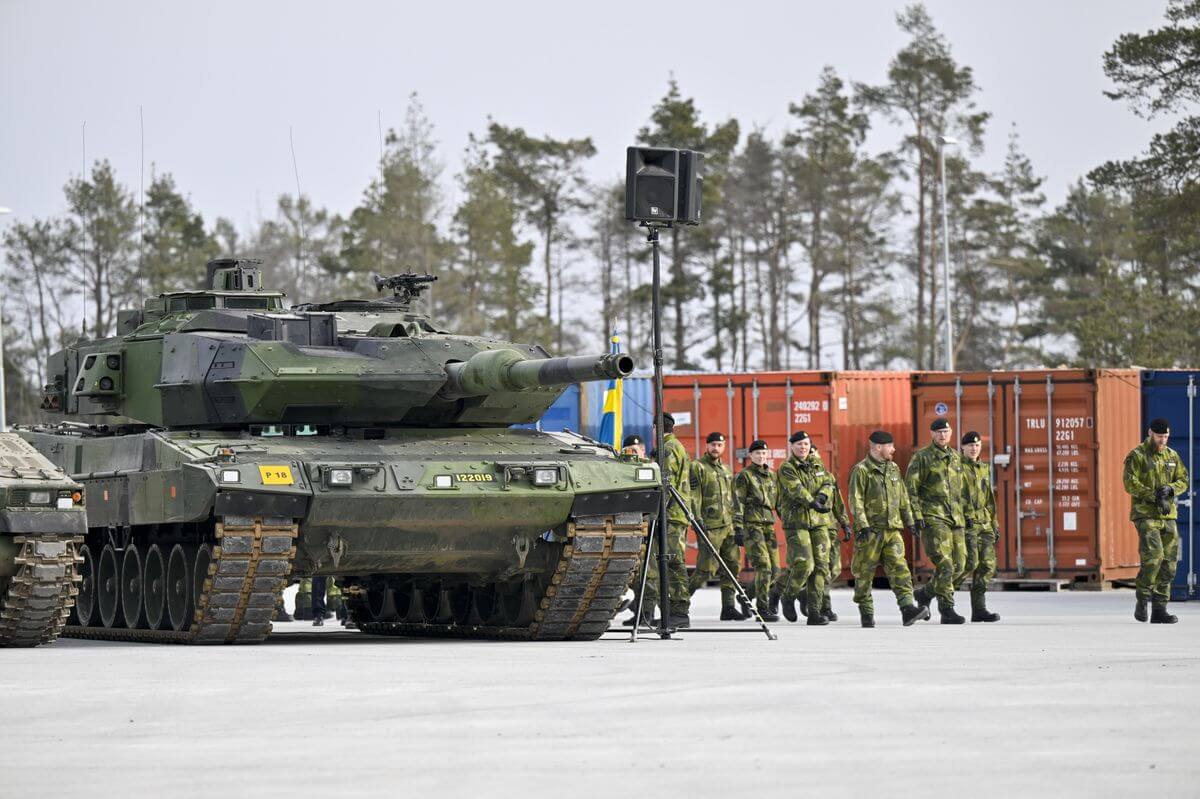On Wednesday, Russia moved its military equipment, including coastal defence systems, towards its border with Finland after Finland and Sweden announced their plans to join North Atlantic Treaty Organization (NATO).
🇸🇪#Sweden and 🇫🇮#Finland's prime ministers have just held a joint press conference outlining plans to join #NATO.
— Dave Keating (@DaveKeating) April 13, 2022
🇫🇮 expected to move first. PM Marin says she won't give a timetable but "it will happen quite fast—within weeks, not within months, we will have the discussion" pic.twitter.com/huEKnkDVUD
In February, Moscow had threatened Helsinki and Stockholm with “military and political consequences” if they joined the security alliance. Similarly, on Monday, Kremlin spokesperson Dmitry Peskov stressed that the Alliance’s expansion would “not bring stability” to Europe, warning that Russia would have to “rebalance the situation” if Finland and Sweden join NATO.
Russia’s decision to move military equipment toward Finland’s border comes after Finnish Prime Minister (PM) Sanna Marin revealed that her country would decide whether to join the Alliance “quite fast, in weeks, not months” despite the Russian threat.
The Times: Finland, Sweden set to join NATO as soon as summer.
— The Kyiv Independent (@KyivIndependent) April 11, 2022
Officials are quoted as having said that Russia made a “massive strategic blunder,” as the two countries are forecasted to join the alliance in the coming months.
Speaking at a press conference with her Swedish counterpart Magdalena Andersson in Stockholm, Marin stated that it is imperative for Finland to be prepared for all kinds of actions from Russia following the Ukraine invasion. “The difference between being a partner and a member is very clear, and will remain so. There is no other way to have security guarantees than under NATO’s deterrence and common defence as guaranteed by the alliance’s Article 5,” Marin stressed. Crucially, the two countries hope that this clause of collective self-defence will protect them against any Russian reprisals.
Marin divulged that she expects the country’s parliament to take a decision “before midsummer.”
Meanwhile, on Wednesday, Finnish lawmakers discussed a report suggesting changes in Finland’s foreign and security policy following the Russian invasion of Ukraine. The report called Russia’s aggression a “blatant violation of international law” that jeopardises the stability and security of Europe. Amidst such security changes, it urged Helsinki to strengthen “its preparedness and security” to respond to the changing security environment.
.@SwedishPM Magdalena Andersson wants to join @Nato already in June this year, according to @SvD
— Totalförsvar (@Totalforsvar) April 13, 2022
Sweden will apply for membership during the #NATO-meeting in Madrid, the 29-30 June, sources say. pic.twitter.com/oEAdmvUq9Q
Regarding NATO, the report noted the country has “deepened cooperation” with the Alliance and spoke of NATO’s open-door policy. It also assessed the possible impact of NATO membership and elaborated on the accession process. “Finland retains the option of joining a military alliance and applying for NATO membership. Solutions are always examined in real time,” the report noted.
In a similar vein, Andersson remarked, “This is a very important time in history. The security landscape has completely changed. We have to analyse the situation to see what is best for Sweden’s security, for the Swedish people, in this new situation.” The Swedish PM also confirmed that the country would apply for NATO membership as early as June. Furthermore, Swedish Minister for Foreign Affairs Ann Linde rebuked Moscow for threatening Stockholm and Helsinki, calling it “unacceptable.”
On March 8, Sweden's Prime Minister warned that NATO membership would add to instability in Northern Europe
— Samuel Ramani (@SamRamani2) April 13, 2022
On March 30, Sweden's PM would not rule out NATO accession
Now, Sweden is on the cusp of joining Finland as a NATO member
Along the same lines, on Monday, Sweden’s ruling Social Democratic party declared, “When Russia invaded Ukraine, Sweden’s security position changed fundamentally.”
Both Finland and Sweden have previously been wary of joining the US-led security alliance. Finland shares the longest land (1,340 kilometres) border with Russia and has thus always assumed a neutral stance as a matter of self-preservation. However, the Russian invasion of Ukraine has changed the mindset of the Finnish and Swedish people toward NATO. According to a recent opinion poll, 68% of the Finnish respondents supported joining the alliance. Polls in Sweden also indicated that most Swedes are in favour of NATO membership.
💬#Zakharova: The Swedish Dockworkers' Union has decided to block any Russia-linked ships from its ports.
— MFA Russia 🇷🇺 (@mfa_russia) April 13, 2022
That is, they imposed a blockade on our merchant fleet & its main home port on the Baltic, St Petersburg. The Swedish trade union has just put itself on a par with the Nazis pic.twitter.com/Isz3THDsDs
In response, on Wednesday, Russian Foreign Ministry spokesperson Maria Zakharova dismissed reports of the supposed “Russian threat” to Sweden and Finland, calling them “unintelligent” and not based on facts.
“They are in line with propaganda and provocation. They do not meet the interests of the peoples of these countries and ensure and serve the interests of the collective NATO led by the United States,” Zakharova claimed.
Zakharova also hit out at the Swedish Dockworkers’ Union’s decision to ban any Russian ships from its ports. She remarked that this blockade on Russia’s merchant fleet has put Sweden “on par with the Nazis.”

